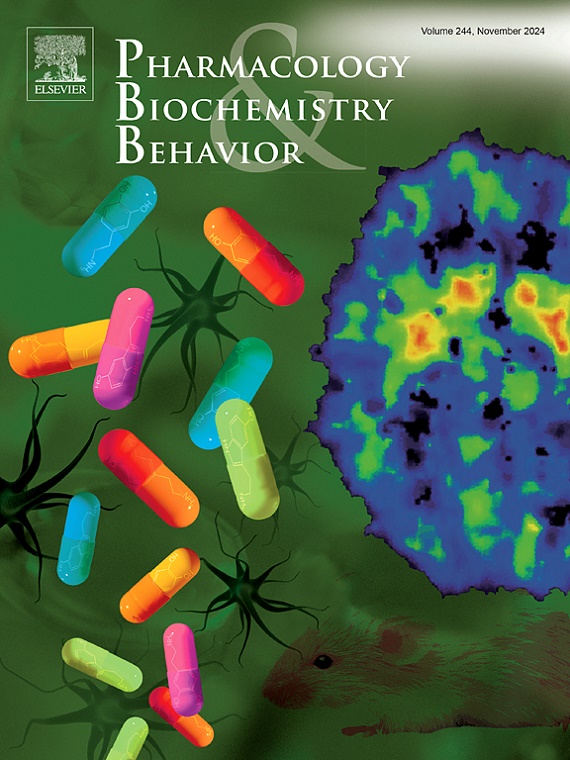Venlafaxine treatment is associated with improved mood, but not decreased cocaine self-administration, in depressed people who use cocaine
IF 2.5
3区 心理学
Q1 BEHAVIORAL SCIENCES
引用次数: 0
Abstract
Individuals seeking treatment for their cocaine use often report depressive systems and nearly half meet criteria for major depressive disorder (MDD). This descriptive study aimed to assess the effects of the antidepressant venlafaxine alone and in combination with gabapentin on depressive symptoms, subjective effects of cocaine, and cocaine self-administration in depressed and non-depressed people who use cocaine. The effects of medication condition on mood and on the effects of smoked cocaine were compared between a group of clinically depressed people who use cocaine (n = 5) and a control group of non-depressed people who use cocaine (n = 5) using laboratory-based measures. In the MDD group, venlafaxine (300 mg/day) was associated with reduced mean Beck Depression Inventory (BDI) scores (35 to <5) and marginally lower ratings of “good drug effect” without affecting cocaine “wanting” or cocaine (0–50 mg) self-administration. In both groups, venlafaxine treatment increased resting heart rate, systolic pressure, and diastolic pressure. The addition of gabapentin (2400 mg/day) had no effect relative to venlafaxine alone for either group. Conclusions regarding venlafaxine's effectiveness in treating depression in the MDD group are tempered by the lack of a venlafaxine placebo condition and by reductions in BDI scores associated with abstinence prior to venlafaxine administration. Further research is necessary to identify effective treatments for depressed people who use cocaine.
在使用可卡因的抑郁症患者中,文拉法辛治疗与改善情绪有关,但与减少可卡因自我用药无关。
寻求可卡因治疗的人经常报告有抑郁系统,近一半的人符合重度抑郁症(MDD)的标准。本描述性研究旨在评估抗抑郁药文拉法辛单独使用和加巴喷丁联合使用对使用可卡因的抑郁症和非抑郁症患者的抑郁症状、可卡因的主观影响以及可卡因自我给药的影响。在使用可卡因的临床抑郁症患者(n = 5)和使用可卡因的非抑郁症患者(n = 5)的对照组(n = 5)之间,采用基于实验室的测量方法比较了药物状况对情绪的影响和吸烟可卡因的影响。在重度抑郁症组,文拉法辛(300 mg/天)与降低平均贝克抑郁量表(BDI)评分(35至35)相关
本文章由计算机程序翻译,如有差异,请以英文原文为准。
求助全文
约1分钟内获得全文
求助全文
来源期刊
CiteScore
6.40
自引率
2.80%
发文量
122
审稿时长
38 days
期刊介绍:
Pharmacology Biochemistry & Behavior publishes original reports in the areas of pharmacology and biochemistry in which the primary emphasis and theoretical context are behavioral. Contributions may involve clinical, preclinical, or basic research. Purely biochemical or toxicology studies will not be published. Papers describing the behavioral effects of novel drugs in models of psychiatric, neurological and cognitive disorders, and central pain must include a positive control unless the paper is on a disease where such a drug is not available yet. Papers focusing on physiological processes (e.g., peripheral pain mechanisms, body temperature regulation, seizure activity) are not accepted as we would like to retain the focus of Pharmacology Biochemistry & Behavior on behavior and its interaction with the biochemistry and neurochemistry of the central nervous system. Papers describing the effects of plant materials are generally not considered, unless the active ingredients are studied, the extraction method is well described, the doses tested are known, and clear and definite experimental evidence on the mechanism of action of the active ingredients is provided.

 求助内容:
求助内容: 应助结果提醒方式:
应助结果提醒方式:


